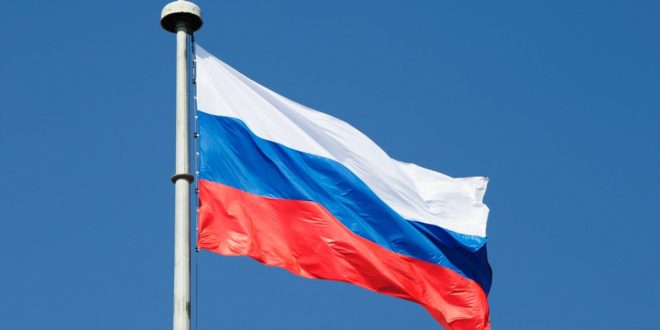By Shehab Al-Makahleh
Economic and financial sanctions have become a major policy tool nowadays against countries that are deemed militarily powerful. Thus, any use of military force would lead to regional or world war such as in the case of North Korea and Russia.
The targeted sanctions aim to cripple the regimes that do not abide by international laws. The United States has managed to turn many of these sanctions into international ones by using its influence at the UN Security Council.
Will these sanctions on Russia be effective? The answer would be disappointing for many as this will not change Putin or his regime and will not weaken his hold on power. The proof is the March 2018 elections which he won.
At present, a debate is going on within NATO on whether these measures work or not or whether they should be upgraded or cancelled. All depends on the target country and its potential. In the case of the Russian Federation, it has been under tough measures since 2014; however, Moscow has not given up and is still competing with the West in Africa, Asia, the Middle East and Europe to protect its national security.
On March 15, the Trump administration imposed sanctions on individuals and companies whom special counsel Robert Mueller reported as agents of American presidential election meddling. Then, the US expelled 60 Russian diplomats and ordered the closure of the Russian consulate in Seattle. Donald Trump has promised before he was elected to improve relations with Russia; however, bilateral relations under his reign are at their lowest point since Cold War not only with Russia but also with the EU members.
Smart sanctions
Historically speaking, sanctions against Russia have taken various forms, starting from diplomatic expulsions, to freezing trade and economic relations. Such measures are reckoned both strategic and punitive measures. The other type of sanctions is “smart” sanctions to undermine the Russian government, mainly President Putin from within, by targeting his elites and influential businessmen to demise the whole economy in order to stir a rebellion against the leadership similar to the case of former Yugoslavia.
To assess the impact, one should start with the restrictions in place which include amongst others: asset freezing, visa bans, diplomat expulsion, and penalties against Russian major oil and gas companies and officials. The EU has suspended loans offered by the European Bank for Reconstruction and Development (EBRD) to Russia at preferential economic development rates. The European states and the US also imposed ban on trading bonds and equity as well as related other brokering services for products.
Russian energy companies, including Rosneft and Gazprom, are under American sanctions. The list also entails three Russian defence companies and a number of Russian state-owned banks. The banning also includes specific technologies which are used for energy projects to explore for oil and gas in the Arctic deep-water. The question is: Have these sanctions been effective enough to change Russia’s conduct and attitude?
The China factor
The targeted sanctions have affected the Russian economy to some extent; however, the mega deals between Russia and China have compensated for the big losses incurred due to these sanctions as both have signed a $400 billion gas deal in May 2014. Thus, the impact varies from province to another in Russia and from sector to another as well.
Those in Siberia have been less affected as they have started depending on their own natural resources to produce their daily needs instead of importing most of their goods from Europe. However, the major cities such as Moscow and Saint Petersburg have been affected mostly because of inflation and due to low exchange rate of the Ruble against major world currencies. Yet, this has not affected Russian government’s behavior and could not coerce President Putin to listen to western calls and demands to change his approach towards international issues.
What has curbed sanctions from being crippling is that the level of nationalism in Russia, or the “Russian soul” and identity have been quite much more effective to counter sanctions. High degrees of nationalism have contributed to the ineptitude of these sanctions. It is apparent that national sentiment aligns with Russian government goals.
Sanctions effect has been reversed in a way or another as nationalism has hiked because of sanctions, affecting the EU states which export many products to Russia. The nationalist sentiment has been behind people’s blame and suffer, not because of Russian government and leadership, but because of external forces. This has driven people to band together as they share the same enemies, threats and identity.
It is true sanctions incurred discomfort and suffering in Russia. However, the Russian Dusha (Soul) has solidified public backing to their government regardless of who is the leader. What makes sanctions almost fail is that Russia is the biggest country in the world and it has huge natural resources.
This has driven its citizens to depend on their potentials to produce their agricultural products instead of importing them from the EU, mainly Germany, Italy and France. In addition, Russians started to rehabilitate their old Soviet factories which have been active in the 1980s and then stopped production since the demise of the union.
To sum up, Russian know that there is an upper limit to actions the West in general and the US in particular would take. The suffering of the Russian citizens will not last long as Putinism remains a phenomenon and Russian soul is back to the country’s body with hiking sentiment of nationalism. Sanctions are effective on some countries but they are less effective on others as in the case of Russia.
____________________________
Shehab Al-Makahleh is Director of Geostrategic Media Center, senior media and political analyst in the Middle East, adviser to many international consultancies. He can be reached at: @shehabmakahleh and @Geostrat_ME.
 Geostrategic Media Political Commentary, Analysis, Security, Defense
Geostrategic Media Political Commentary, Analysis, Security, Defense





